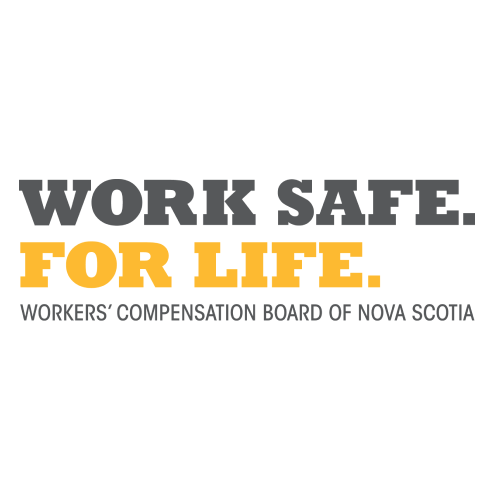May is Mental Health Awareness Month, a time to think about the importance of mental well-being for everyone, regardless of age, background, or status. It’s a month to focus on breaking down barriers and stereotypes that prevent people from being their best at home, work or play.We all have a role to play in making workplaces psychologically safe, and in ensuring that safe, healthy work is part of recovery, whenever that’s possible, as it so often is.
As we prepare for new legislation coming September 1 that provides workers’ compensation coverage for gradual onset psychological injury, this e-newsletter from WCB Nova Scotia will help keep you informed and connected with information, tools and resources that support you and your employees, and help you to build and support psychologically safer workplaces.
Informational video launched on GPI
The WCB is working hard to support workers and employers as we prepare to cover a new type of injury – gradual onset psychological injury – starting September 1st.
Learn more about what this type of injury is, as well as what it isn’t, and how we’re getting ready to provide a new service experience for those who are impacted.
Webinars for employers
Join us to learn more about gradual onset psychological injury at one of our planned monthly webinars, hosted by members of the WCB’s new Psychological Injury team.
On May 8, from 3 – 4:15 p.m. AST, join our guest presenter, Dr. Bill Howatt, an international expert in workplace mental health, who will focus on how employers can promote mental wellbeing in the workplace, and help prevent psychological injuries at work. Register here.
Mark your calendar for the next webinar on June 26, which will provide a Return to Work focus on Gradual Onset Psychological Injury. Registration details will be available soon. Stay tuned for more details on upcoming webinars, and make note of the following dates when they’ll be held: July 24, Aug. 28, Sept. 25, Oct. 30, and Dec. 4.
You can view previously held webinars here:
Jan. 25 – Draft Psychological Injury Policy Awareness
Mar. 27 – Employer webinar: New Service Model and the GPI Claims Process
Apr. 24 – Employer webinar: The claim journey | The role of Client Care Navigators | Pre-existing conditions
Sessions for workers
WCB Nova Scotia is holding information sessions for workers and labour representives on gradual onset psychological injury. Three sessions will be held in-person and one will be virtual. Spread the word in your workplace and register using the links below:
In-person sessions
MyAccount change makes reporting a GPI easier
We’ve made an update to MyAccount to make it easier to identify a psychological injury claim.
Log in, select your policy, navigate to the Forms & Letters tab, and select Injury Report, as you would normally do. Under “Part of body injured” you now have the option to select “Psycholgocial Injury” whereas in the past, you would have selected “Other.” Selecting “Psychological Injury” will route your claim directly to our team of Client Care Navigators who will action it right away.
It’s one of the ways we’re working to provide a better service experience for workers and employers.
Safety and Health Week, May 6 – 11, is just around the corner! It’s the perfect time to refocus and recommit to a safe and healthy workplace.
We can help. Find tools and resources on healthy workplaces that can help you make a positive difference in your workplace and the lives of those within it.

Questions and Answers
What’s covered under Nova Scotia’s new gradual onset psychological injury legislation?
Diagnosed psychological injuries that are the result of significant workplace stressors or an accumulation over time of significant workplace stressors that happen at work or because of the work someone does.
What’s not covered?
Mental stress from interpersonal conflicts (except for workplace bullying or harassment) or actions/decisions of the employer related to the worker’s employment are not covered.
For more questions and answers about gradual onset psychological injury, be sure to check out the following links:
Q&A GENERAL
Q&A WORKERS
Q&A EMPLOYERS
More on how to create a psychologically safe workplace
- Work can be part of recovery from a psychological injury. Learn more about how to build your return-to-work plan.
- Having plans and policies in place to prevent bullying and harassment will help support a psychologically safe workplace. Review this information from the Canadian Centre for Occupational Health and Safety (CCOHS) on Bullying in the Workplace.
- Employers have a responsibility to provide a workplace that’s physically and psychologically safe. We can help. Find helpful tools and resources on worksafeforlife.ca.
- For more best practice tools and resources that can help support workers’ positive mental health, especially for those who work in emergency service occupations, visit the First Responders Mental Health website.
- Read the Draft Psychological Injury Policy and Policy Background Paper, stay connected and receive Policy updates by subscribing here.
- Safe+Secure GPI: First editionAccess Mental Health Supports Now
If you or someone you know needs mental health support now, help is available.- For immediate assistance in Nova Scotia, contact the Provincial Mental Health and Addictions Crisis line toll-free at 1-888-429-8167.
- The 988 Suicide Crisis Line provides urgent, live, trauma-informed support by phone and text 24 hours a day, 7 days a week.
- Community Navigators are standing by to help connect Nova Scotians with the mental health services they need, simply by dialing 211.
- For non-emergency advice about mental health and addictions, call 811.
Visit the Government of Nova Scotia’s Mental Health and Wellbeing website for more community mental health supports.




